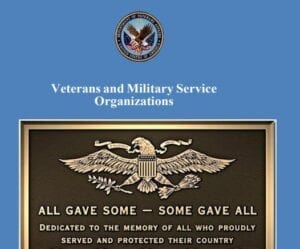Before we start a roadtrip, we have to ensure we are ready. Whether that means we program our playlists, stock up on 400 Slim Jims, or pack swim gear, fishing rods, or kids stuff, we have to prepare.
Stick with me as we guide you on your trip to help you discover the future you want to create, consider the possible ways to create this future, determine your career mission statement, and put you on a path to achieve your future.
A career transition is no different. You have to be ready. The first part of preparing is having the right attitude.
Attitude = Altitude
In our first part of our journey to reignite your career we are going to look at five critical attitudes to take on.
1. Growth mindset
People often debate, “Are ________ born or made?” We’re made. All made. Sure, we all have some natural talents. What happens if we don’t work on these talents? We’re made.
Would Tiger Woods have won as many majors as he did if decided at age 22 he was good enough? Would Michael Jordan have helped the Bulls if he didn’t work during the off-season?
To improve at anything, we must put in the work.
I used to hate networking. Now I think I’m pretty darn good at it. Still working on it. Keep growing.
The question is – Do you believe putting in the work will help?
Do you have a growth or fixed mindset?
Are you willing to try something new even though you may not do well?
What have you thought about doing and stopped yourself because you didn’t have the ability?
In our careers, there is no pass or fail. Only learning.
Get comfortable with being uncomfortable. And being uncomfortable can be finding some small adjustments or new ways of thinking to act in a way you are comfortable.
Don’t think, “It’s too hard.” Rather think, “I will get better.”
Invest in yourself. You deserve it!
2. Healthy Ego
The right balance of humility and confidence. If you’re over confident, you may expect results without putting in the work. If you lack confidence, you will likely not try for things others can see you accomplish. A lack of confidence can hinder your ability to articulate your value and your body language will say, “Nothing to see here. Move along.”
If you’re too humble, you may not be taking credit for your accomplishments or willing to ask others for help. You may be under representing the value you provide. If you lack humility, others may see you as pompous and not worth the drama.
After a successful consulting project, my head swelled a little. I was overconfident. As a result, on my next client project, I thought I had all the answers. While my answers were correct, my overconfidence was probably off-putting and therefore I didn’t develop the relationships I could have.
I’ve always been humble to a fault. I’m on a journey to advocate for myself more.
By striking the right balance of confidence and humility, I come from a place to serve others and let them know how I can help them in a constructive way.
As you think about your humility and confidence, what shifts may you need to take?
3. Create Possibilities
Have you ever brainstormed at work and Nellie says, “We can’t do that.” or “That won’t work.”
For your career, quiet the negative Nellie within you and among your colleagues. While it is important to be pragmatic, it’s also important to reach for the stars.
Want to learn more? Reframe your negative beliefs
Are you willing to dream big and consider what’s possible?
Great! What are the constraints in your life?
Spend 5 minutes writing down the constraints.
Whether it’s salary, location, time, or something else. Walk through your life, day by day for the last week. Write the constraints down.
What constraints are real? Which are based on false assumptions?
Are you willing to think about what might happen in your career? … what will happen if you put in the reflection, work, and learning?
Reframe the false constraints. Be creative. You are creative. Explore options. Write them down. We’ll do this in a more structured manner soon.
What beliefs might keep you from exploring possibilities?
Others may have closed doors. Reopen them.
The answer is always no unless you ask. Let’s start asking. Let’s start dreaming.
4. Strengthen your performance
When’s the last time you tried a new behavior to help you strengthen your performance?
When first learning to golf, I was addicted to the Golf Channel. Always looking to improve the trajectory of the ball.
I wish I would have known about Johari’s window and was more self aware before applying Golf Channel techniques to my swing.
I was missing context and self-awareness. I was haphazardly doing things to my swing that we’re not allowing me to improve. I needed a professional to watch me and provide feedback.
The fourth critical attitude for your transition is self-development.
What functional skills and interpersonal skills do you need to grow to help you make your transition?
Use your support network and new contacts to help you with this assessment. As you consider your future, what do you need to be able to do differently? How do you find out what the gaps are?
Invest in yourself. Grow your talents. Grow how you work with people.
Are you willing to put in the time to try something new? To make something uncomfortable become comfortable? It could be as simple as asking others for help. Or following up with people. Or learning how to code.
Your functional skills and interpersonal skills should not be static. When there’s a gap, work on it. Look for gaps. Look to grow.
5. Work hard
People willing to put in the work get rewarded.
When reporting to my second ship, an aircraft carrier, life was drastically different. With only four hours of watch per day and pursuing qualifications was optional, one could get away with 8 or 10 hours of work per day – significantly less than the 16 – 20 hours per day on my first ship.
The thrill of being responsible for orchestrating the operations of a 280,000 horsepower propulsion system motivated me to maintain my work ethic and set qualified.
I stood out and was rewarded.
If you’re in transition and find yourself not willing to put in the effort, perhaps you don’t have the right goal.
The difference between my engineering qualification and career transition is the roadmap. The map was there for me to get my qualification. The map for my career transition out of the Navy was fuzzy.
My goal is to help your transition be less fuzzy.
If you’re willing to work hard, stretch yourself, believe in yourself, have a healthy ego, and consider the possibilities, you’re ready to continue on our trip.
Make it Happen
What questions does this raise for you? When will you have time to reflect and discover how to shift your mindset?
Need help? Have a question? Let me know how I can best support you. You can either join the Career Reignition Roadtrip group or contact me directly.
Ready for the next stop? Let’s discover your desired outcomes and visualize your future.






